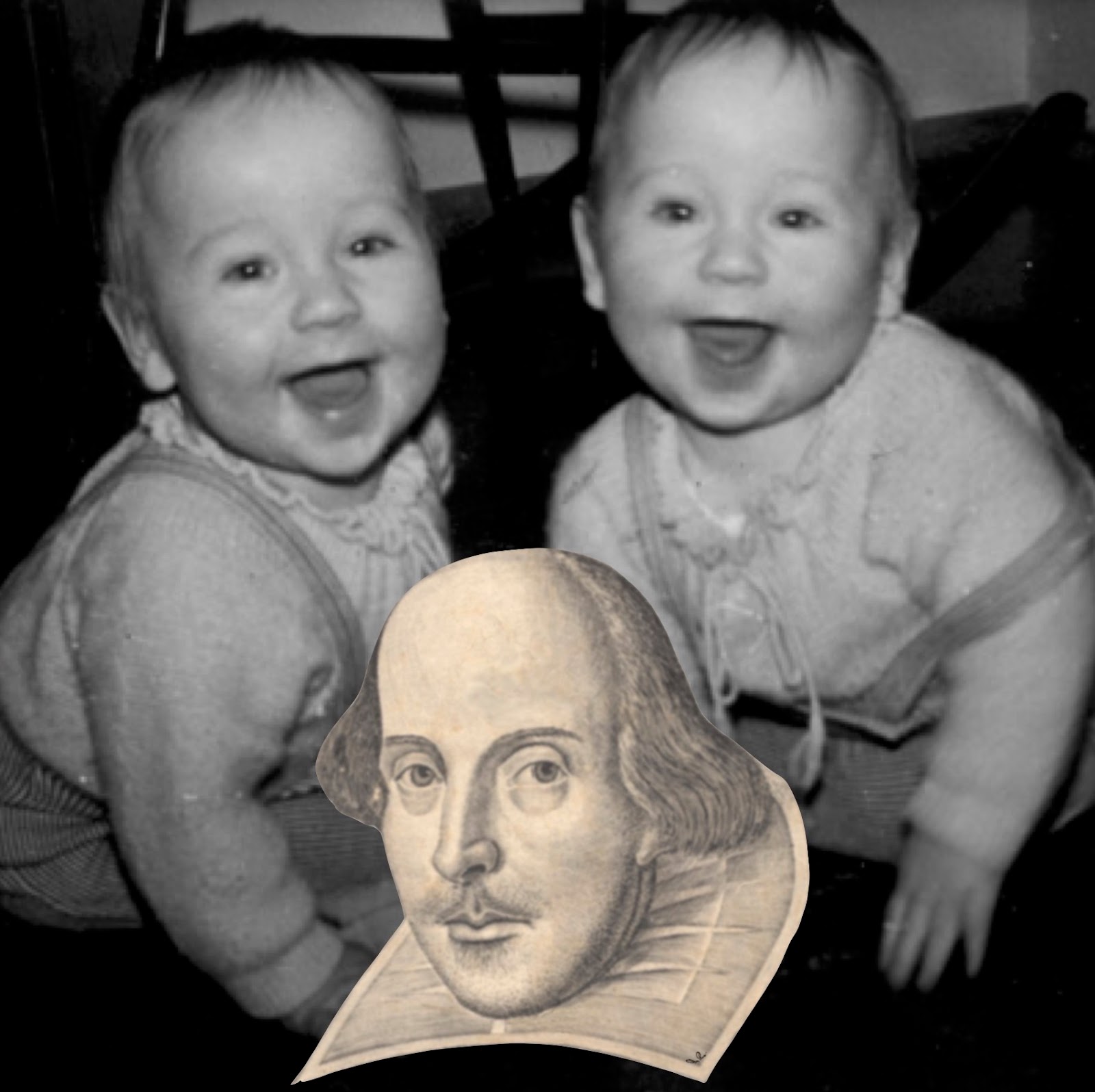For a little over a year, identical twins Dave and Dan Balzer have been doing a podcast in which they consider the significance of their being identical: What does it mean that it was very difficult to tell them apart when they were younger? What does it mean that they took advantage of that to play many different pranks on the relatively-unsuspecting? What does it mean that they have become less identical over their fifty years on this earth? Can they, later in life, become as identical as they were in their early years? Do they want to?
When Dave, on his way home to Winnipeg, stopped by the Twin Cities to pick up Dan, I happened to mention that Shakespeare has a number of twins in his plays.
From that off-hand remark came the "Shakespeare's Folly" episode of the podcast. In it, I try to explain the import of having two sets of identical twins in The Comedy of Errors and Dan and Dave try to determine whether that's relevant to their exploration of their identity as identical twins.
Listen to the episode (I've embedded it below, but there are also convenient links at the bottom of this post). I think you'll enjoy it enough to say, "I came for the Shakespeare, but I stayed for Dave and Dan!"
Links: The Episode on the Spotify Website. A Direct Link to the Episode on the Spotify App.
Now that you've listened to that, you're probably wondering why I didn't have much to say about actual twins during the English Renaissance. First, I don't know that much about the subject. But I've requested a classic book on families during this time period by Lawrence Stone that may have some insight, and I'm tracking down a book by Daisy Murray called Twins in Early Modern English Drama and Shakespeare. I'll let you know what I find.
The other set of twins that I should have mentioned is Shakespeare's! In the heat of the fast-paced interview, Hamnet and Judith didn't come to mind, and I apologize to them.
If you're disappointed that we didn't talk about Twelfth Night, start your own podcast about fraternal twins—I'll be happy to be your guest!
Finally, I would like to think some more about the identical names in The Comedy of Errors. Each set of twins in that play is identical down to the name: We have Dromio and Dromio and Antipholus and Antipholus. I think this both heightens and underlines their identical nature, and that means there's an even more profound revelation of each twin's individual identity at the end of the play.
Links: The Episode on the Spotify Website. A Direct Link to the Episode on the Spotify App.











No comments:
Post a Comment